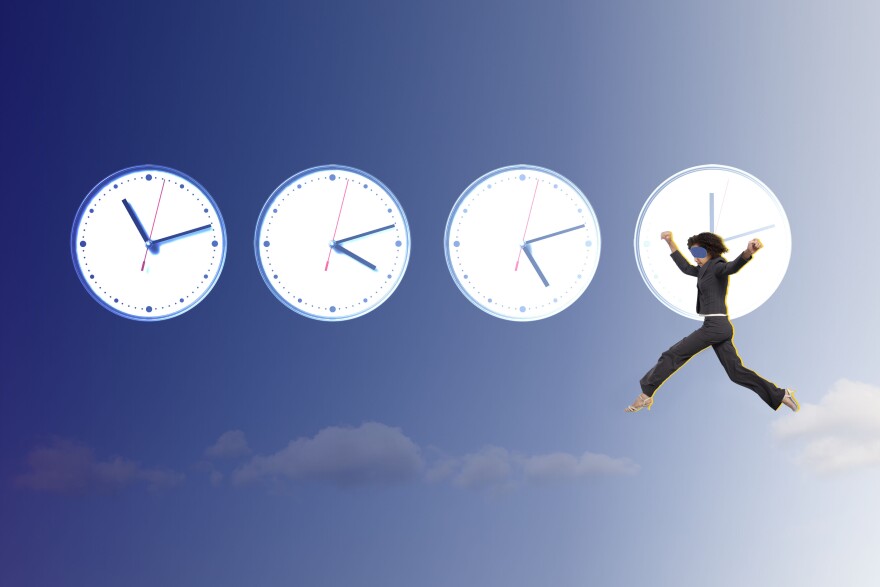Taylor Swift caused a stir after the Super Bowl this year by answering a question about her flight (on her private jet, no less) from Tokyo to Las Vegas. When her boyfriend Travis Kelce of the Kansas City Chiefs asked her "how do you not have jet lag right now?" she responded, perhaps jokingly, "jet lag is a choice."
But sleep experts like Jade Wu would like Swift and others to know that "jet lag is very real. It's biologically ingrained."
Jet lag is a form of circadian misalignment, an umbrella term for any time your body clock is out of sync with your current time zone or where the sun is in the sky, says Wu, a behavioral sleep medicine psychologist and researcher at Duke University.
It happens when you cross multiple time zones in a very short amount of time, she says. A direct flight from Tokyo to Las Vegas, for instance, takes about 10 hours and sets your internal clock forward by 17 hours (in Standard Time). So if you land in Las Vegas at 7 p.m., your body might still be on Tokyo time, which is noon the next day.
What happens to your body during jet lag
For many folks, jet lag can leave them feeling groggy and out of sync with their surroundings. "Our thinking is slower, our mood is worse, our metabolism is not as good. We can't sleep when we want to sleep but we can't feel awake when we want to be awake," says Wu.
That's because almost everything in our bodies — like our blood pressure, our organ systems and our cognitive function — runs on an internal clock, says Wu. "These clocks are synced up to each other. During jet lag, suddenly all these clocks are confused. They're saying: 'Wait a second, I thought it was daytime. Why is it night?' "
That includes the master clock in your brain called the suprachiasmatic nucleus (SCN). "Think of all the clocks in your body as a billion-person orchestra. The SCN is the maestro. And if the maestro can't keep time, then the entire orchestra falls apart," she says.

How to minimize jet lag symptoms
To mitigate the effects of jet lag, a little preparation goes a long way, says Wu. Here are some tips to help manage symptoms of grogginess.
Consider the direction you're headed. If you're going west, say to Seoul, you'll have to stay up and wake up later. If you're going east, say to Madrid, you'll have to sleep and wake up earlier. "Going west is easier because your body [naturally] wants to go to bed later. Going east is hard because you have to fight [sleep]," says Wu.
If you're traveling west, take a short nap on the flight so you can go to bed at a reasonable hour once you reach your destination. By the time you land, hopefully you'll be sleepy enough to "sleep a nice, solid night and wake up in the morning local time," says Wu.
If you're traveling east, try to stay up during your flight. "When you land, you're not going to be sleepy yet by the local bedtime. So you may need to take a sleep aid to help you fall asleep that night," she says.
The digital story was written by Malaka Gharib and edited by Andee Tagle and Meghan Keane. The visual editor is Beck Harlan. We'd love to hear from you. Leave us a voicemail at 202-216-9823, or email us at [email protected].
Listen to Life Kit onApple Podcasts andSpotify, and sign up for ournewsletter.
Copyright 2024 NPR. To see more, visit https://www.npr.org. 9(MDM3NjYwMjA5MDE1MjA1MzQ1NDk1N2ZmZQ004))



